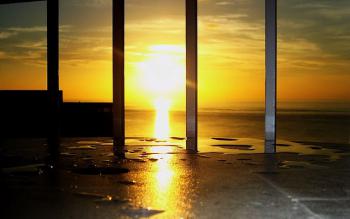Serendip is an independent site partnering with faculty at multiple colleges and universities around the world. Happy exploring!

Our Song!
Oh I’m done with school, I’m out of motivation
I’m walking through a fog of stifled dreams
There will always be something missing here
Falsely composed
Trying to ignore finals week hysteria, 99 problems, and more
Oh I’m ready to go forward
Ready or not here I come
Dreams are arising from the unconscious C
I'm I'm excited for what's to come
I'm facing reality finding new purpose in life
I want to live my life on my terms
I want to live full-heartedly
Falsely composed
Trying to ignore finals week hysteria, D99 problems, and more

Initial Self Reflection Post (Moved under title: "Self Reflection")
My self-reflection was posted here earlier - before I actually read the portfolio instructions to put it under a specified link!

What Walls Do We Build/Need/Break Down?--Our Final Presentations!

Welcome everybody! We're happy that you’ve joined us here to see what we've learned in our 360° this semester. A 360° is a cluster of interdisciplinary courses that look at one main theme. Ours is called Women in Walled Communities.
In The Rhetorics of Silence, we examined the many functions and meanings of silence: as a political tool, an imaginative space, and a powerful form of communicative expression--as well as the result of lack of agency and or the denial of voice.
In Learning in Institutional Spaces, we explored how the institutions of schools and prisons promote or inhibit learning. It was in this course that we looked most critically at this institution, Bryn Mawr College, and its own history of power and oppression, which sparked a lot of interest in Perry House as an embodiment of some of that history.
Don't overestimate the amount of food you need, guests!
I am very very upset after two lunch shifts at Wyndham this week...Not just that I have to work in the middle of the day during final week, but to see how much food are wasted in only two hours. Now I totally understand the green project a couple of weeks ago that demonstrated how much food we just throw away on a daily basis. When I have meals at dining halls, I also have this habit to take whatever looks attractive and may or may not finish it at all. Sometimes, I have to waste food because the food doesn't taste what I have imagined. But seriously, people are taking too much some time...And it is hard to see that only looking at your own plate. But the kitchen is clearing the plates like crazy and nearly 20% of them are full when people are done with the meal (roughly estimated by me, could be very misleading but indeed there are lots of such cases). We will be having meals at the dining halls for most of the time at Bryn Mawr, maybe take some time to note how much you exactly need for each meal? Also in response to the budget cut these days...Everyone should experience working at a dining hall some time... Really, this is the most direct way to see how much we waste EVERY MEAL! (May be a suggestion for the field work for the course.)

All good things...
Danielle Ford
12.19.2012
360 reflection
Reviewing the posts and papers I wrote at the start of the semester reminded me of the mental state I’d been in. I had just returned to Bryn Mawr after a semester abroad -- at an institution in which students had no voice whatsoever and I hadn’t met a single person who thought gender expression was a social construction (that is probably an unfair way to judge a culture -- but it is very important to me)... then, three months of education work on an urban farm and a month living on an anarchist intentional community in North Carolina. It was strange to feel like I had even a semi-permanent residence. I was re-joining a familiar institution with a new, more radical lens. This is evident in the first papers I wrote for Jody, about unschooling and resisting the words/roles “teacher” and “student.” Also, my first memo for Barb was a frustrated rant containing a lot of what I had learned about the criminal justice system through Occupy and Anarchist info-sessions. Radical energy was radiating out of me. This 360 has been wonderful for me in that it helped me express that energy --- to figure out how to communicate it productively.
Hannah's Self-Evaluation
1. During the semester, I was a present part of the class discussions. Some days I talked more than others, but I always contributed to the large discussions we had as a class and the smaller group discussions as well. I gave my opinion and interpretations about the texts we read and also tried to give thoughtful responses to the comments of other students who were part of the discussion.
I also gave my thoughts to my partners during the discussions of our essays each week. Every time except for once I was able to read their papers before class so I could give advice about their writing or just tell them what I got out of their essays (if I wasn’t sure what advice to give). These one on one discussions about my writing and my partners writing during class were very helpful and reading their papers helped me be able to read my own papers better. I found that I am now more able to step back from my writing and analyze it from a more distant perspective.

Exploring East Asian Identity Live Broadcast
Here's the introductory podcast. It's a more polished, expanded version of what you saw at the final presentation
We recorded our livepodcast but be warned: it's INCREDIBLY soft. I suggest you pump up the volume for it. It's shared in a google doc here (I need to sign up for podcast permission from itunes in order to get a more formal way to share things with everyone, so this will have to do for now)
Here's the script we had for monday's presentation:
INTRODUCTION
I’m Irene Shin ‘13
Chandrea Peng ‘15
Yiran Zhang ‘14
Irene: Over the past several weeks, the three of us have interviewed several students on this campus to get a better understanding of the following question: what is it like to identify as East Asian at Bryn Mawr?
As you heard in my own interview with Danielle for her final project, my own motivations for being a part of this project can be summed up as so: I consider the East Asian demographic as a sleeping giant of sorts: an integral part of Bryn Mawr’s landscape but not foregrounded in any conversation on campus.
Our final 360 project aims to 1) give that space that has yet to exist and 2) understand why East Asians have a tendency not to speak on this issue to begin with.






